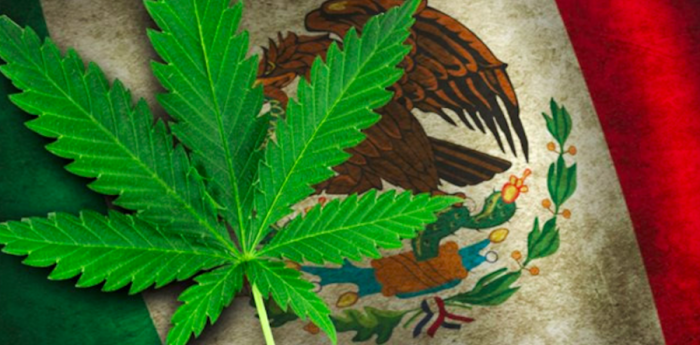Mexico Supreme Court eliminates barriers for low-THC cannabis production
As Mexico ventures in the direction of complete cannabis legalization, the Supreme Court has rescinded previous rules for low-THC cannabis production.
THC – which is short for ‘tetrahydrocannabinol’ – is the primary active constituent of the cannabis plant. The crystalline compound is one of hundreds of identified cannabinoids and it is renowned for making consumers feel “stoned” or “high”.
Based on a recent ruling, judges in the Supreme Court supported Xebra Brands Ltd. and Xebra Mexico (its Mexican subsidiary) in pronouncing that laws against the cultivation of cannabis with less than one percent of the psychoactive compound are “unconstitutional.”
Non-appealable, the ruling states that a lower court must follow-up with the Federal Commission for the Protection against Sanitary Risks (COFEPRIS) – Mexico’s national health agency – to implement the high court’s decision.
Why was Xebra challenging Mexico’s national health agency?
The Supreme Court ruling came about after Xebra Mexico confronted COFEPRIS for attempting to prevent non-medical and non-scientific cannabis production. Once the ruling was complete, Xebra officials said that it would begin commercializing low-THC CBD and CBG products, such as infused beverages, oils, tinctures and topicals.
Xebra Brands identifies as a cannabis cultivation/product business with a diverse portfolio of worldwide brands and intellectual property. The Vancouver-headquartered company is heavily involved in a number of vertical markets with globally-registered trademarks, including cannabis drinks, leisure and wellness.
Elements Bioscience is recognized as Xebra’s Mexican subsidiary. The subsidiary produces a wide spectrum of products for the health and wellness industry, including regulatory-pending CBD goods.
Stock market traders and investors can find Xebra – which is one of five companies hand-picked by the Government of the Netherlands to engage in medicinal cannabis trials – trading on the Canadian Securities Exchange under the ticker ‘XBRA.’
What progress is Mexico making towards a fully legal cannabis market?
Back on August 21, 2009, lawmakers decriminalized the possession of small amounts of cannabis in Mexico. In an effort to further curb illicit drug activity across the country, minor possession of other drugs was also decriminalized.
Then, in 2015, a ruling by the Supreme Court meant that four people associated with the Mexican Society for Responsible and Tolerant Personal Use (SMART) would be allowed to cultivate and consume cannabis for personal use.
Two years later, a bill was signed into law by President Enrique Peña Nieto to enable the medical use of cannabis containing less than one percent THC, before the Supreme Court deemed a law forbidding recreational cannabis consumption as “unconstitutional” on October 31, 2018.
Looking to the future, Mexico is making some serious progress in regards to legalizing the plant in its entirety. In fact, the judicial branch is paving the way for cannabis reform in Mexico where, on March 10, 2021, the lower House of Congress approved a bill legalizing adult-use weed with a 316-to-219 vote.
During the summer of 2020, the Mexican Supreme Court authorized recreational cannabis before the regulatory process was finalized. Negotiations are still taking place.








